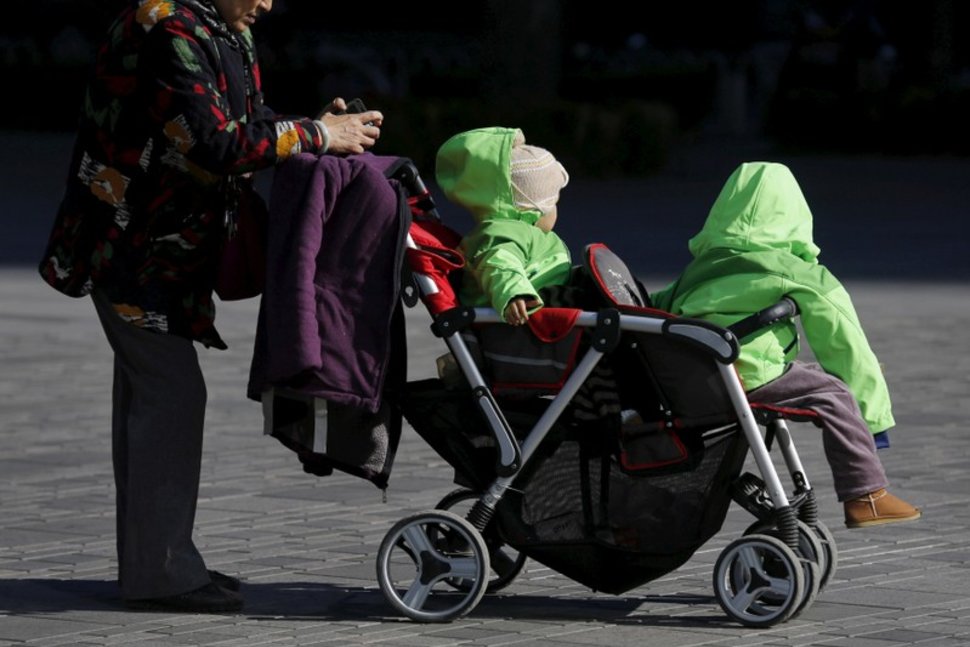Media Report

- CNN reports: "The Chinese government could be moving to end birth restrictions, amid growing concerns over an aging population and a dropping birth rate. Under current family planning rules, the majority of Chinese couples are limited to two children, following an easing of the country's notorious "one-child policy" in 2016. These restrictions now look set to be further relaxed under a new draft reform to the country's Civil Code, potentially allowing families to have multiple children for the first time in decades... The revised code won't be completed until March 2020 and there is no indication yet how exactly the change would be made, or whether any other restrictions or conditions might remain on Chinese families."
- CNBC reports: "The Nanhua rebar steel futures index is up 22 percent this year. The Shanghai composite, meanwhile, has declined 16 percent. Steel prices reflect the current state of the real economy, while stocks represent market sentiment on the growth outlook, said Larry Hu, head of greater China economics at Macquarie. Monthly economic reports indicate growth is slowing, but more accurate data that comes out less frequently points to a more stable picture, according to Nicholas Lardy, a senior fellow at the DC-based Peterson Institute for International Economics."
- Bloomberg reports: "What struck Wang Wen about Antarctica, beyond the brutality of the December cold, was the scale of U.S. operations in such an inhospitable environment and the American flag fluttering by the sign that marks the geographic South Pole. Observing the academic mission of hundreds of U.S. scientists in a region rich in resource potential, he was determined that China must catch up. The report Wang wrote this summer for the Chongyang Institute for Financial Studies at Renmin University of China in Beijing, where he's executive dean, reflects China's growing dilemma as it muscles its way into an international system it didn't create."
Calendar
- 2018-08-27 China’s new currency policy is a dovish signal in the trade war, analysts say
- 2018-08-26 Trump is right. His trade war with China is causing a huge problem with North Korea
- 2018-08-24 White House Criticizes China Over El Salvador Recognition
- 2018-08-23 Beijing retaliates as new US tariffs kick in on $16 billion of Chinese goods
- 2018-08-22 China Has Appointed a New Propaganda Chief to Polish Its Image Abroad
- 2018-08-21 Companies Warn More China Tariffs Will Cripple Them and Hurt Consumers
- 2018-08-20 China Trade War: Where Are We Now?
- 2018-08-17 US-China trade talks will focus on yuan weakness, experts say
- 2018-08-16 China: Trade talks with the US are back on
- 2018-08-15 China could reportedly use its ‘unwritten’ tech rules as an ‘invisible tool’ against US firms
News
- Bloomberg Early Indicators Show China's Economy Weakening Again in August
- ABC News China-Australia relations in the spotlight, as port groups push for more action and less red tape
- Bloomberg China Gets Another Shot at Mideast Energy After Total Leaves Iran
- Reuters China says projects not to blame for majority of Africa debt
- CNBC Mnuchin now praises China for supporting its currency, saying that is not manipulation
- CNN US airlines are struggling to make money from China's travel boom
- The Wall Street Journal Why China's Yuan Will Struggle to Rally Further
- CNN China moves to end two-child limit, finishing decades of family planning
- CNBC Stocks say China's economy is in bad shape. Steel prices tell a very different story
- Bloomberg What Does a Chinese Superpower Look Like? Nothing Like the U.S.
- CNBC The US-Mexico trade deal may be bad news for China
- Bloomberg Europe Tries to Avoid Crisis as U.S.-China Trade War Grows
- CNBC Chinese bonds just became more accessible to international investors
Commentary
- Bloomberg Didi Backlash Sounds a Warning for China's Unicorns
- The Atlantic The Murders That Sparked China's Rideshare Boycott
- Bloomberg China's Wilting Consumer Lenders Need Some Relief
- The Atlantic China Is Treating Islam Like a Mental Illness
- NPR China's Newest Aircraft Carrier, 'Type 001A,' Reportedly Begins Sea Trials
- Live Science China Won't Share Its Samples of a Deadly Flu Virus. Here's Why That's a Problem.
